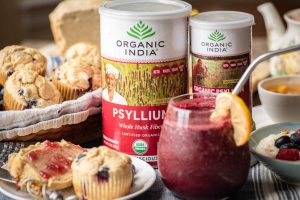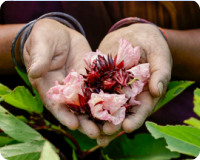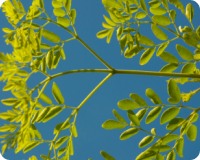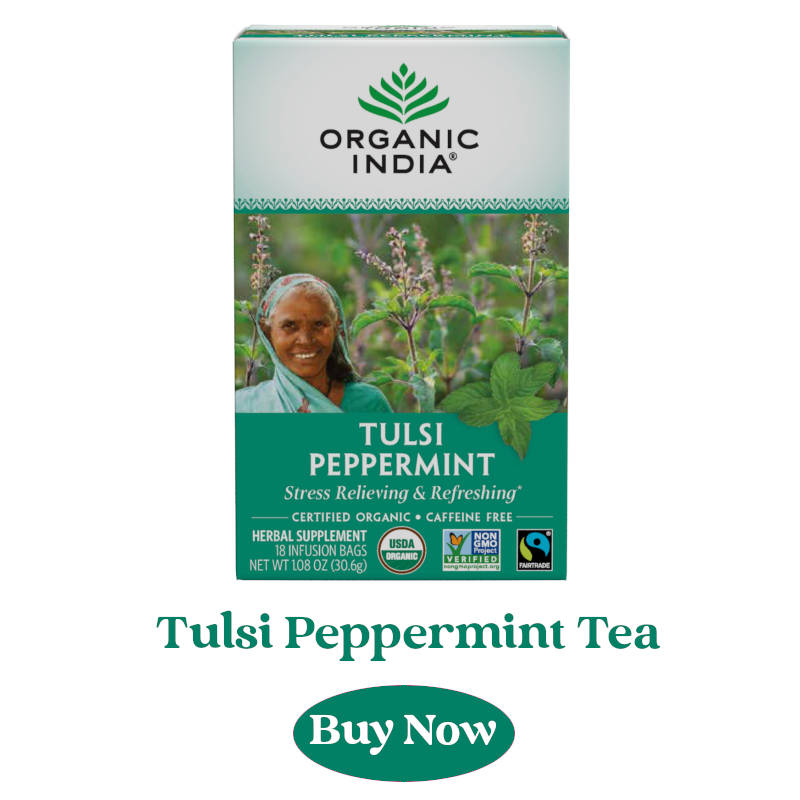

Section

Back
The winter season can be harsh. Cold, dry air and dropping temperatures can be tough on your lungs and respiratory system. Winter is the perfect time to consider incorporating herbs for the lung health into your daily wellness routine. Your lungs are vital organs that flood your body with life-giving oxygen. The health of your organs and the rest of your body largely depend on maintaining strong lungs and a robust respiratory system.
But much of the air we breathe today is polluted with harmful particles that can permeate your respiratory system, potentially causing damage. It’s important to safeguard this vital system as your lungs work tirelessly to filter pollutants from the air.
Herbs for Lung Health: Breathe Easier With These 7 Herbs
For thousands of years, people have used Ayurvedic herbs to support lung and respiratory health. These herbs offer many respiratory benefits, including:
- Calming and soothing irritation
- Helping to break up congestion
- Relaxing the bronchial system
- Strengthening the lungs
- Soothing irritation of the throat
Below you’ll discover seven of the most common herbs used to support healthy lungs and reinforce the respiratory system. You may already be familiar with a few of these extraordinary herbs – like peppermint, rosemary and ginger. Others, like pushkarmool and bibhitaki may be new to you. Either way, these robust herbs, along with a healthy diet and exercise, will support a strong, healthy body and mind.
1. Peppermint
Peppermint is undoubtedly one of the most well-known herbs. It’s one of the hundreds of species of the mint family that includes spearmint, basil, oregano, rosemary, thyme and lavender. It grows plentifully throughout Europe and North America.
Since the 11th Century BC, peppermint has been used for rejuvenation and vitality. Ancient Romans and Egyptians used peppermint to soothe digestive issues.
Today, peppermint is used to alleviate many symptoms ranging from digestive and respiratory issues to reducing tension and helping stimulate mental function.
Here are a few ways you can use peppermint in your daily routine:
- Add two or three drops of peppermint oil to your water
- Use fresh or dried peppermint leaves to make a refreshing tea
- Add peppermint oil to your diffuser to freshen the air
- Chew fresh peppermint leaves to refresh your breath
Research indicates that peppermint may have some protective qualities which may support healthy immune function. The menthol in peppermint can act as a natural decongestant, helping to shrink swollen membranes in the nose and loosen congestion.
Try breathing in the steam from hot water mixed with peppermint oil to help open nasal passages. Or, cozy up with a nice mug of peppermint tea in the morning to start your day off on a refreshing note.
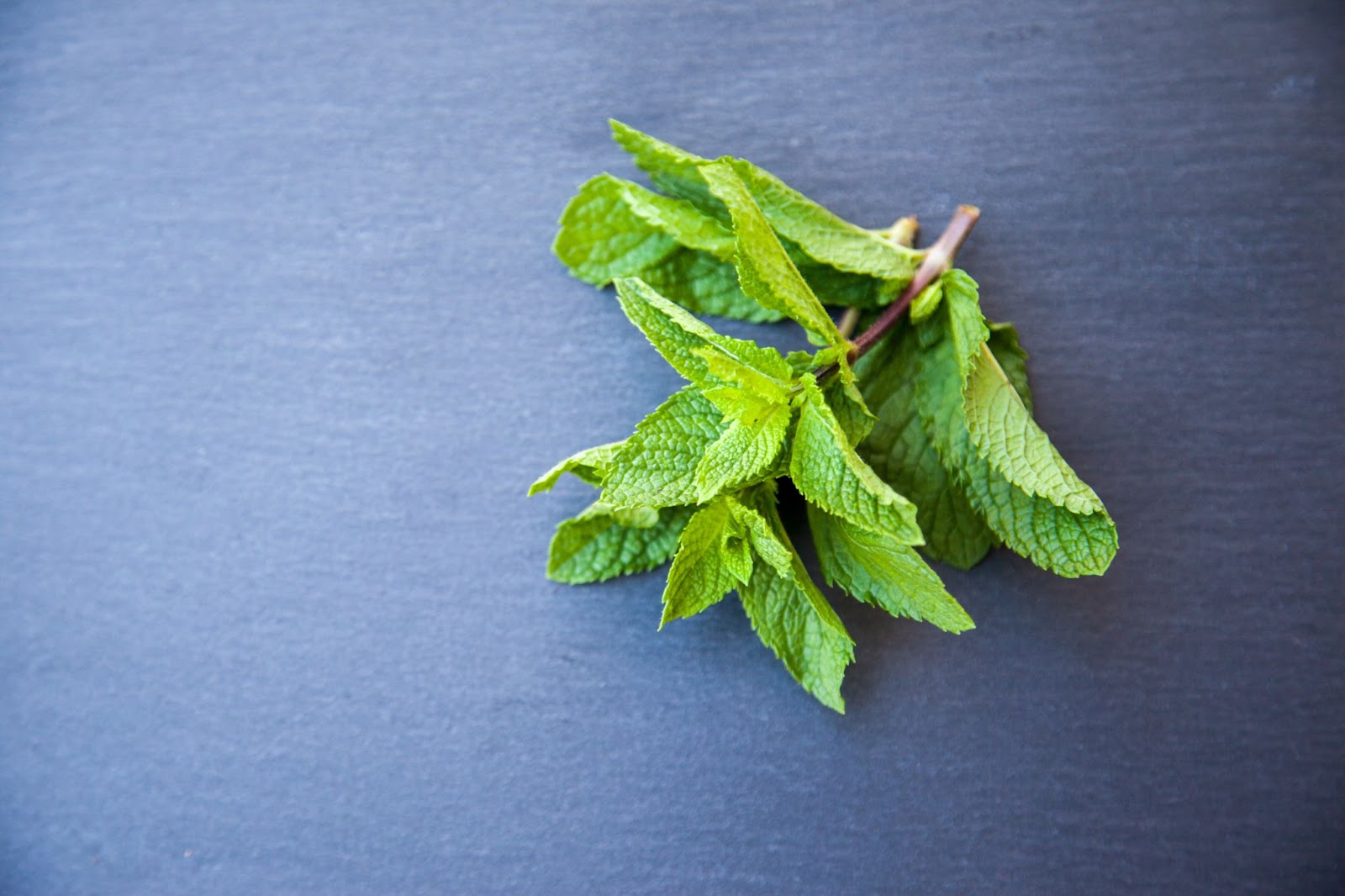
2. Pushkarmool
Pushkarmool, or Inula racemose, is a perennial herb that’s part of the daisy family. Showcasing bright yellow flowers and wide green leaves, it blooms from July to September in temperate and alpine climates. Pushkarmool is a bitter herb with a pungent taste that balances the Kapha dosha as it rejuvenates the lungs and supports a healthy inflammatory response.
Pushkarmool has many therapeutic uses but is mainly used as an expectorant and bronchodilator. Expectorants work by thinning the mucus in your airway so you have more productive coughs. A bronchodilator relaxes the muscles in the lungs, widening your airway for normal, healthy breathing.
Pushkarmool is available as an herbal supplement in capsule form that can easily be added to your wellness routine. It can also support healthy blood pressure.
3. Pippali
Pippali, also called Long Pepper, is an aromatic herb used for centuries for its broad restorative properties. This exotic perennial plant bears long thin fruits that are dark green and shiny. It’s a native of the Indo-Malaya region but is also found in the tropical rainforests of India.
In Ayurveda, Pippali is a Rasayana, or rejuvenating herb, widely used to support respiratory health. It helps to reinforce lung health and ease blockage. Pippali is a common ingredient in many Ayurvedic preparations due to its bioactive elements. The herb can be found in our Turmeric Formula supplement’s Trikatu blend.
For respiratory support, try mixing one teaspoon of Pippali powder, turmeric powder and dried ginger powder into a cup of warm water. Add a teaspoon of honey for a soothing effect. Now imagine the comfort you’ll feel from being able to take a deep, full breath. It is also an effective expectorant.
4. Ginger
Since ancient times, ginger, with its spicy flavor, has been used to enhance culinary dishes the world over. It’s brimming with minerals like potassium, magnesium and zinc. It’s also rich in antioxidants and bioactive compounds that support healthy digestive function, making it a popular home remedy for stomach health.
Ginger is also known for its beneficial properties. Studies indicate that ginger helps relax bronchial constriction, break down and expel mucus, and support a healthy inflammatory response.
Ginger is often combined with turmeric, tulsi, or lemon for an effective tonic. To help bring balance, try sipping a ginger-infused tea. Revel in the spicy warmth as it opens your airways, allowing your breath to come naturally.
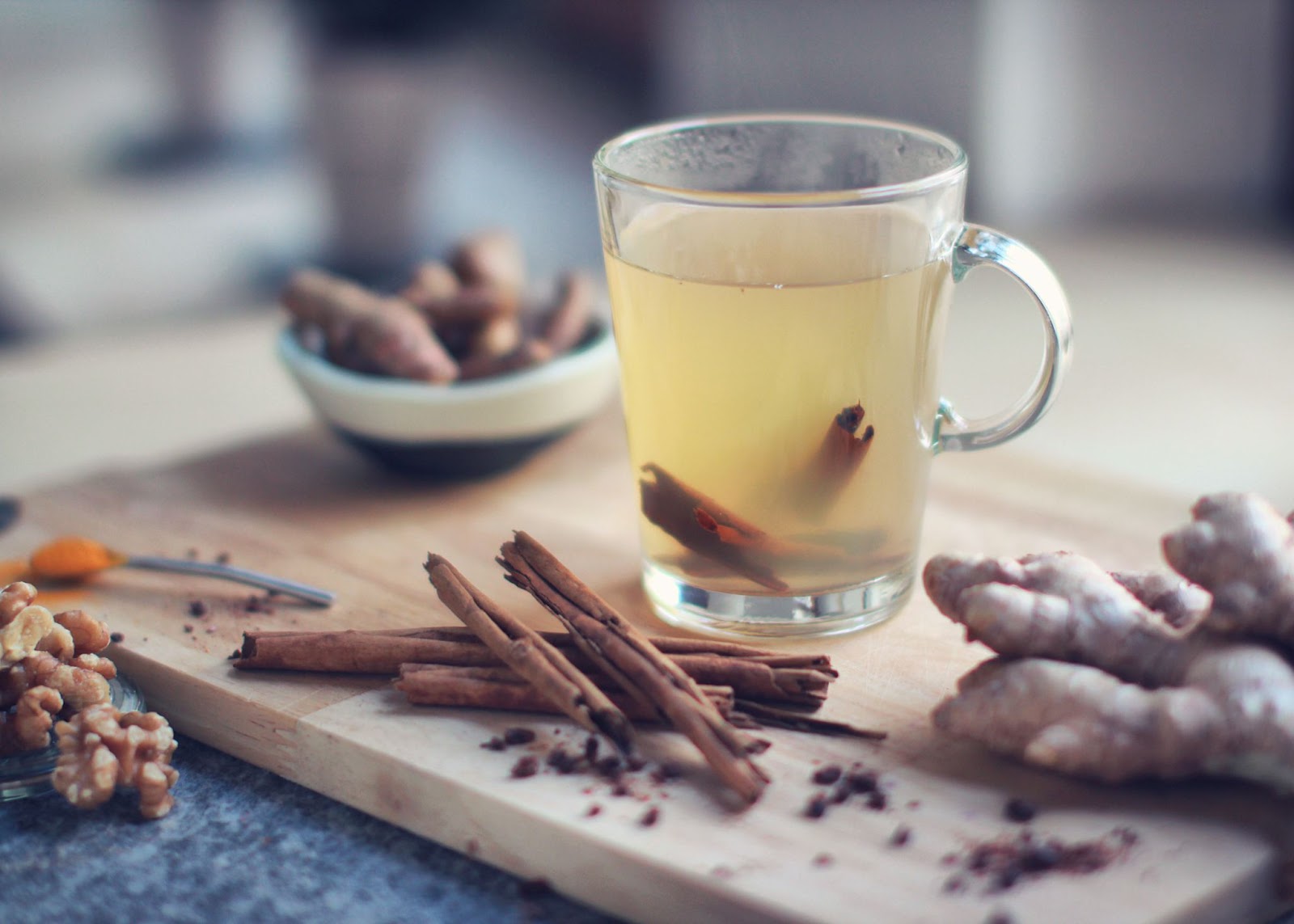
5. Bibhitaki
Bibhitaki, Terminalia bellirica, is a large tree commonly found on the plains and lower hills in South Asia. The fruit or nut of the tree is used in traditional Ayurveda as a Rasayana, for longevity, stamina, and to invigorate and rejuvenate the body. Bibhitaki is one of the three fruits of Triphala which helps balance all three doshas and can be found in a convenient capsule to support your overall wellness.
Bibhitaki contains essential vitamins and minerals like Vitamin C, potassium and selenium. Thanks to its powerful antioxidant and bioactive constituents, bibhitaki has many health benefits, including its ability to support a healthy inflammatory response in the respiratory system. It is a strong expectorant that helps support open airways.
6. Rosemary
Known as Rujamari in Ayurveda, rosemary is an aromatic herb largely used as a seasoning and garnish in culinary dishes. It has a distinctive fragrant aroma and is a member of the mint family.
You may have noticed rosemary essential oil as an ingredient in your soap and other skincare products. This is because rosemary contains antioxidant properties that protect the skin and reduce the signs of aging.
Those same antioxidant properties, along with the expectorant and cleansing properties, make rosemary an excellent choice to support the health of your lungs.
To help clear nasal passages, add rosemary oil to a diffuser. Alternatively, you can add a few drops to a mug or small pot of boiling water and carefully inhale the vapor. This helps clear mucus from your lungs, enabling you to breathe easier.
Another option is to make rosemary tea. Simply place one teaspoon of dried rosemary into a mesh tea basket. Add some ginger, cardamom and a piece of a cinnamon stick for additional flavor. Bring two cups of water to a boil, then place the mesh tea basket into the hot water, allowing the flavors to blend while you enjoy the pungent, lavender-like aroma.
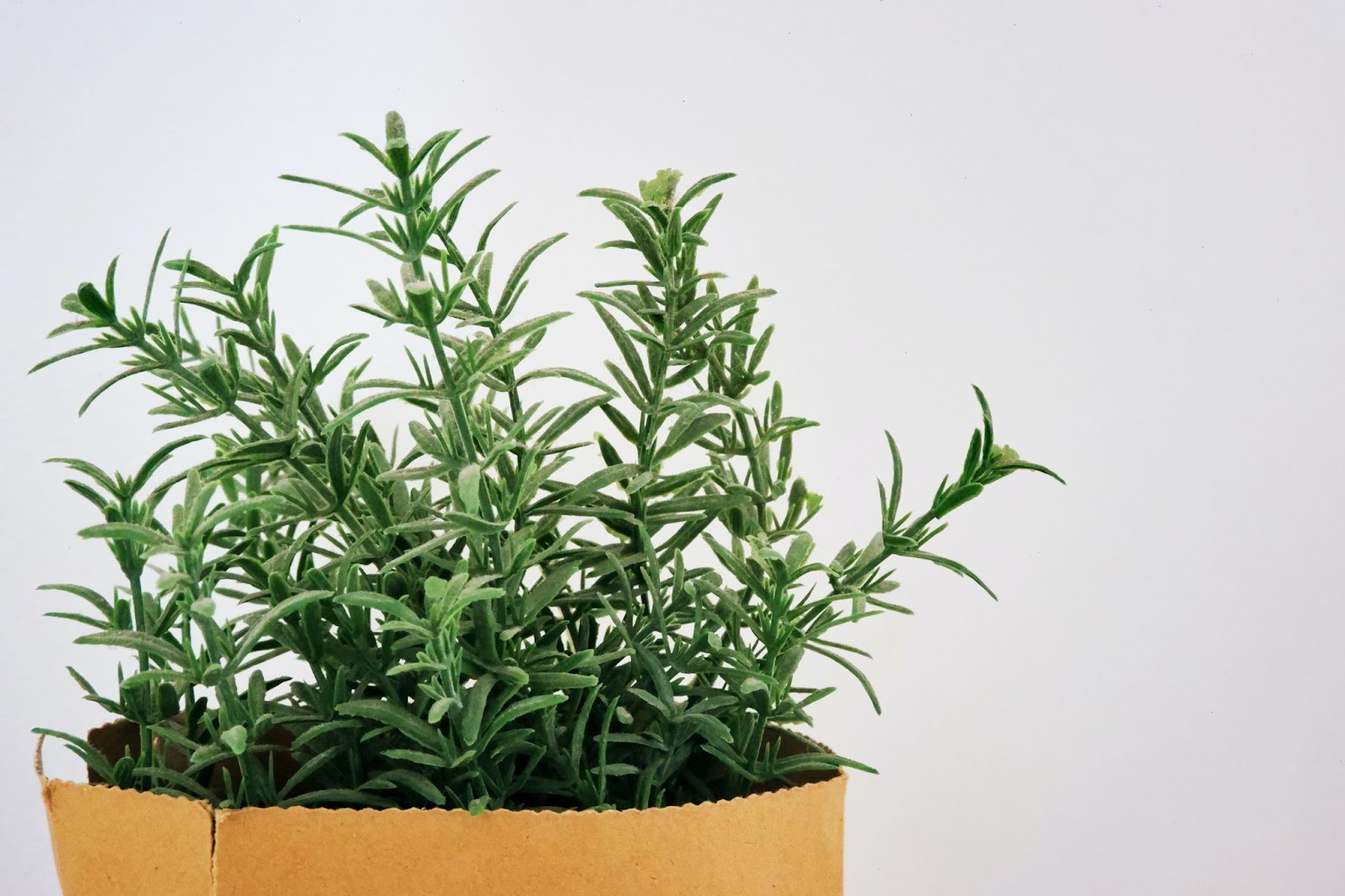
7. Stinging Nettle
Stinging nettle, or Urtica dioica, is aptly named due to the stinging or burning sensation you get when you brush against the plant’s hairy leaves. This bristly plant grows throughout North America and Europe and is often thought of as a weed. Nettle has been used as an herbal panacea for thousands of years because of its dense variety of nutrients.
The nettle leaf contains a wide spectrum of vitamins, minerals and polyphenols that support a healthy inflammatory response among other benefits. The baby leaves that grow at the top of the plant in the early spring are used to nourish and detoxify the body.
In Ayurveda, nettle is a Rasayana, a nourishing and rejuvenating herb. It is astringent in nature and very pungent. It stimulates the Vata dosha while balancing the Pitta and Kapha doshas.
Try making a stinging nettle infusion by adding one ounce of dried nettle leaves (or two ounces of fresh leaves) to four cups of hot water. Start by boiling the water and pouring it over the leaves in a glass jar. Let it steep for at least four hours or overnight. Drink this herbal infusion within the next 36 hours.
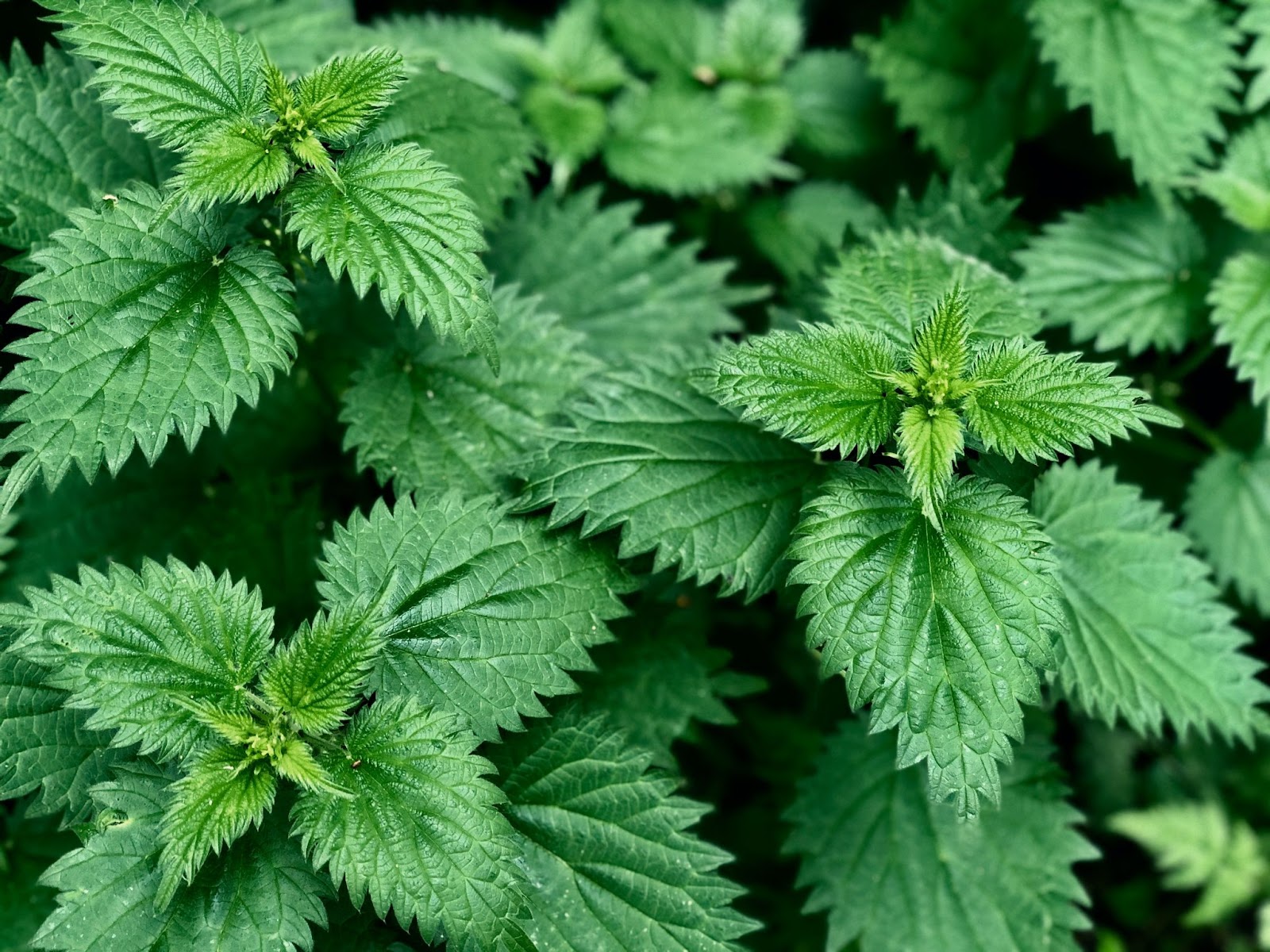
Herbs for Lung Health
These powerful plants and herbs with their countless benefits have stood the test of time. For more than 5000 years, people have achieved and sustained wellness through conscious living and by implementing natural remedies into their daily lives.
At Organic India USA, our teas make it easy to incorporate Ayurvedic remedies for lung health into your daily life. Take care of your respiratory system this winter with a few of our powerful products.
Now that your lung and respiratory health are up to speed, check out these herbs for immunity for immune support and whole system wellness.

